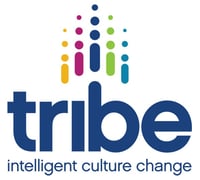
Act now to beat those post-holiday blues
Summer’s here, so your workforce are probably more motivated by sun, sea and sand, than safety. Holidays are for relaxing and forgetting the stresses of work – and rightly so. But in the process, some people also lose the good safety habits we spend the rest of the year trying to develop.
In theory, a break from the routine should leave us refreshed and raring to go. In reality though, it takes time to get back on track and come to terms with the mountain of work that piles up while you’re away.
Research found that 1 in 3 holiday-makers say the very thought of returning to work makes them feel depressed. And that’s equally disheartening for leaders like you, welcoming back a workforce who’d rather be sipping Pina Coladas on a sunny beach somewhere.
And it’s distractions like this that increase risk – especially in hazardous environments.
Yet with a little preparation and planning, you can help staff readjust to working environments more quickly, and re-motivate them at the same time.
And the time to do that is right now!
Why now?
Right now, you’ve got approximately a month to plan and implement your communications before everyone returns to work. The alternative is to worry about it later, after a sudden and unhealthy spike in incidents or near-misses.
If, like us, you value sustainable performance and a responsible safety record, the former, proactive approach makes far more sense.
Basically, it’s all about mindset. You need to get everyone back into work-mode and focused on their well-being, like they already are throughout the rest of the year. And September is your opportunity to begin a campaign that re-groups and reminds people of the need to be vigilant, and to stop and think before every task, no matter how routine.
A well-executed communications plan, targeted at people as soon as they return to work, will help you tackle this issue head on.
Here are six useful snippets of advice you can share with staff, to help them return to work safely after their summer holiday.
Feel free to use these in your campaign.
1. Cut yourself some slack
Try not to panic. There’s really no need to jump right back in and catch up with everything all at once. Perhaps try focusing on smaller tasks you know you can get done quickly – that momentum can help you get back into your routine.
2. Take stock
Take extra care and time to assess risks. Ask yourself if anything has changed while you were away and do a proper handover if someone else covered your job.
It’s also important to properly set-up your work area and organise tools and equipment so they’re where you need them.
3. Take a walk
Exercise releases endorphins – these are ‘feel good’ chemicals that trigger a positive feeling in the body. Even a short, brisk, walk at lunchtime can help lift your mood.
There’s good evidence to suggest people who exercise are more productive, and lose less time at work because of illness.
Plus, it may help you get beach-body ready for next year!
4. Look out for others
You’re probably not the only one struggling to get back into work mode. So keep an eye out for other people who may be distracted.
Offer to help colleagues out if they feel unsure or stressed. It helps you re-focus yourself too, by working together to find solutions.
5. Avoid ruts
A holiday is a planned break from the norm. But why stop when you get back to work?
Do something different with your free time. Take the kids to the local zoo at the weekend, have some friends over on a ‘school-night’, go for a swim, or simply grab some popcorn and catch a movie night rather than collapsing in front of the TV every night.
6. Leave on time
Just because you’ve been away doesn’t mean you have to put in more hours at work. Don’t play the hero!
If you prioritise tasks within your workload, instead of spreading yourself too thinly, you’ll achieve more of what matters and find it easier to manage your time.
Support your staff
We suggest you share these tips in a carefully timed poster campaign or team briefing – one which encourages people to pause and consider the risks they face. Or you could ask managers to hold informal, face-to-face ‘welcome back to work’ sessions.
Holidays are all about treasured memories through new experience, often with family and friends. That’s why it’s important to stay safe and well throughout the rest of the year, so everyone can enjoy more in the future.
About Clare Solomon
Creative Director
I’m a founder and Creative Director for Tribe with over 25 years of experience as an Employee Engagement and Internal Communications Consultant including running my own internal communications agency prior to forming Tribe in 2016.



